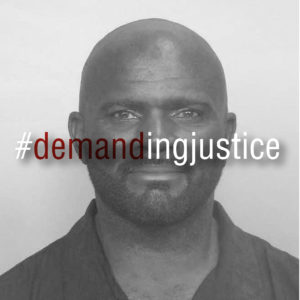On July 30, 2012, J.S., S.L., and L.C., three juvenile sex trafficking victims, filed a lawsuit against Backpage.com, LLC alleging that the website participated in their exploitation by creating an online marketplace of escort ads where children are sold and bought for sex. Backpage.com claims it is immune from civil liability under Section 230 of the Communications Decency Act (CDA), 18 U.S.C. § 230. The trial court denied Backpage.com’s request to dismiss the case and on July 26, 2014, the Supreme Court of the State of Washington granted review of the decision.
Backpage.com is a primary venue for buyers of commercial sex, including with minors who are exploited through trafficking. Just as buyers will continue to seek commercial sex acts with juveniles until we take seriously criminal deterrence efforts, Backpage.com will continue to facilitate these buyers until we stop them.
Shared Hope International joined National Crime Victim Law Institute, Covenant House New York and Human Rights Project for Girls in filing an amicus (“friend of the court”) brief urging the court to allow the case to proceed, giving the child victims in this case the right to seek justice and have their day in court. Other advocacy organizations and the Washington State Attorney General’s Office have filed briefs in support of these children also.
The Washington State Supreme Court will hear arguments in the case on October 21, 2014.
Amicus Briefs in Support of Child Respondents
- Brief of The National Center for Missing and Exploited Children
- Brief of FAIR Girls
- Brief of National Crime Victim Law Institute, Shared Hope International, Covenant House, and Human Rights Project for Girls
- Brief of the Coalition Against Trafficking in Women
Case Filings
- Brief of the Appellants – Village Voice Media Holdings, L.L.C. d/b/a Backpage.com; BACKPAGE.COM, L.L.C.; and NEW TIMES MEDIA, L.L.C., d/b/a Backpage.com
- Brief of the Respondents – J.S., S.L., and L.C.;
- Reply brief of the Appellants – Village Voice Media Holdings, L.L.C. d/b/a Backpage.com; BACKPAGE.COM, L.L.C.; and NEW TIMES MEDIA, L.L.C., d/b/a Backpage.com
- Order for Cert to WA Supreme Ct – J.S. et al v. Village Voice Media Holdings, L.L.C. – 7-17-14
- Amended Complaint, Superior Court Pierce County – J.S. et al v. Village Voice Media Holdings, L.L.C.– filed 9-5-12
- Ruling Granting Discretionary Review – J.S. et al v. Village Voice Media Holdings, L.L.C.









